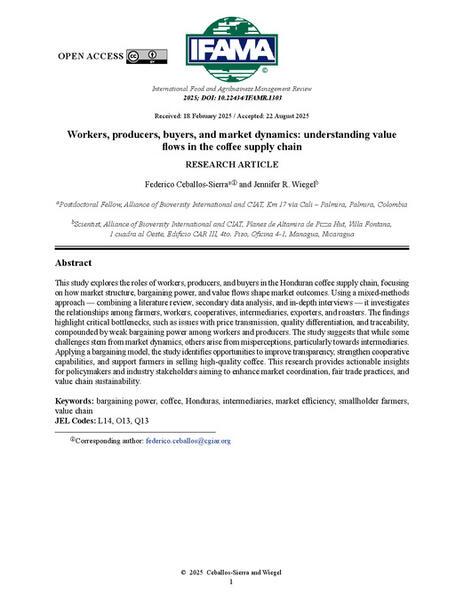
Abstract This study explores the roles of workers, producers, and buyers in the Honduran coffee supply chain, focusing on how market structure, bargaining power, and value flows shape market outcomes. Using a mixed-methods approach — combining a literature review, secondary data analysis, and in-depth interviews — it investigates the relationships among farmers, workers, cooperatives, intermediaries, exporters, and roasters. The findings highlight critical bottlenecks, such as issues with price transmission, quality differentiation, and traceability, compounded by weak bargaining power among workers and producers. The study suggests that while some challenges stem from market dynamics, others arise from misperceptions, particularly towards intermediaries. Applying a bargaining model, the study identifies opportunities to improve transparency, strengthen cooperative capabilities, and support farmers in selling high-quality coffee. This research provides actionable insights for policymakers and industry stakeholders aiming to enhance market coordination, fair trade practices, and value chain sustainability.

